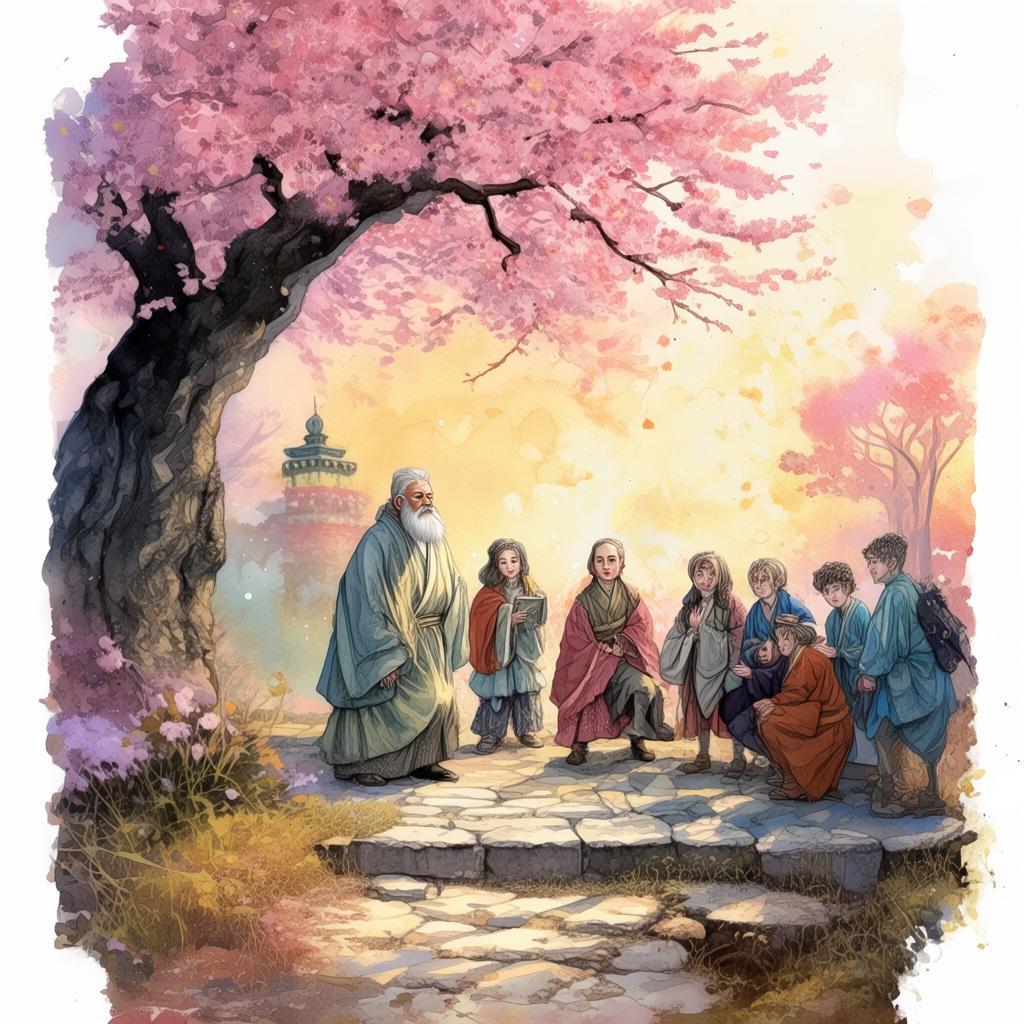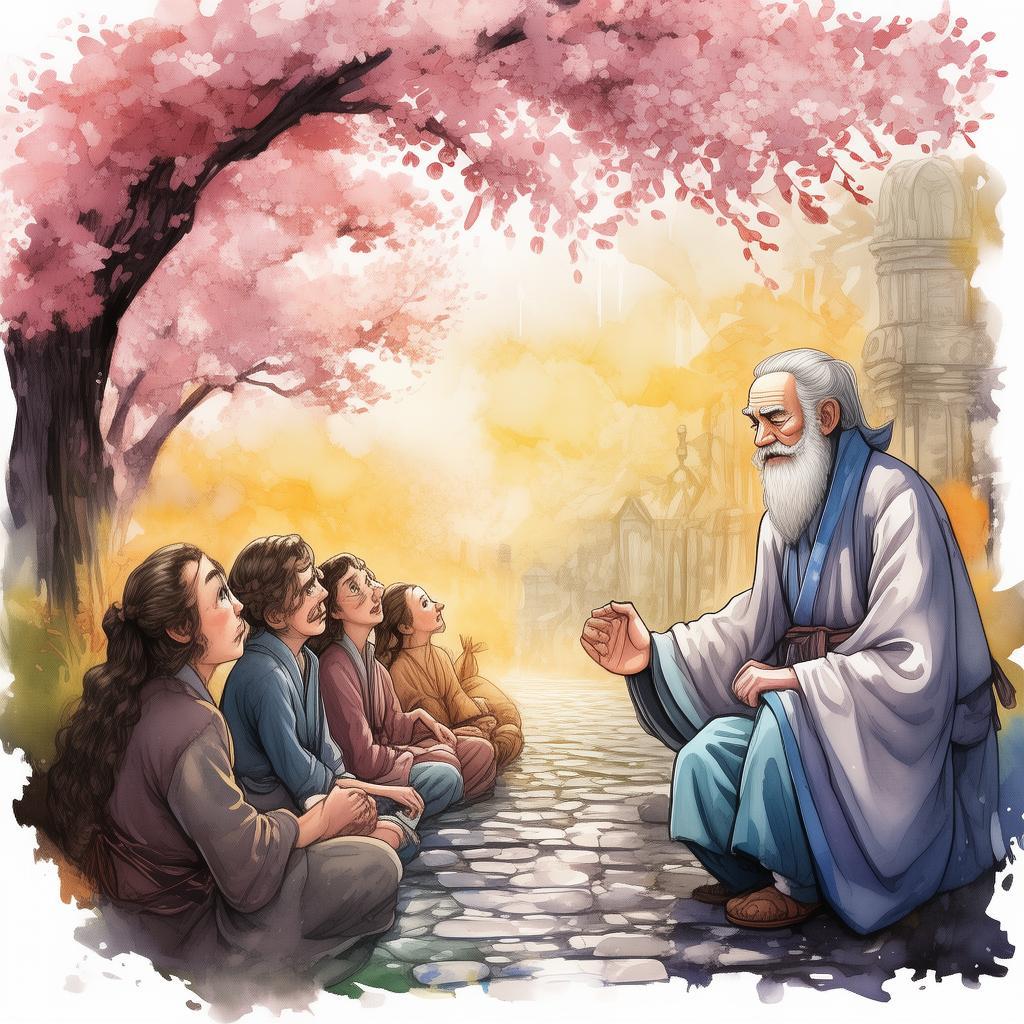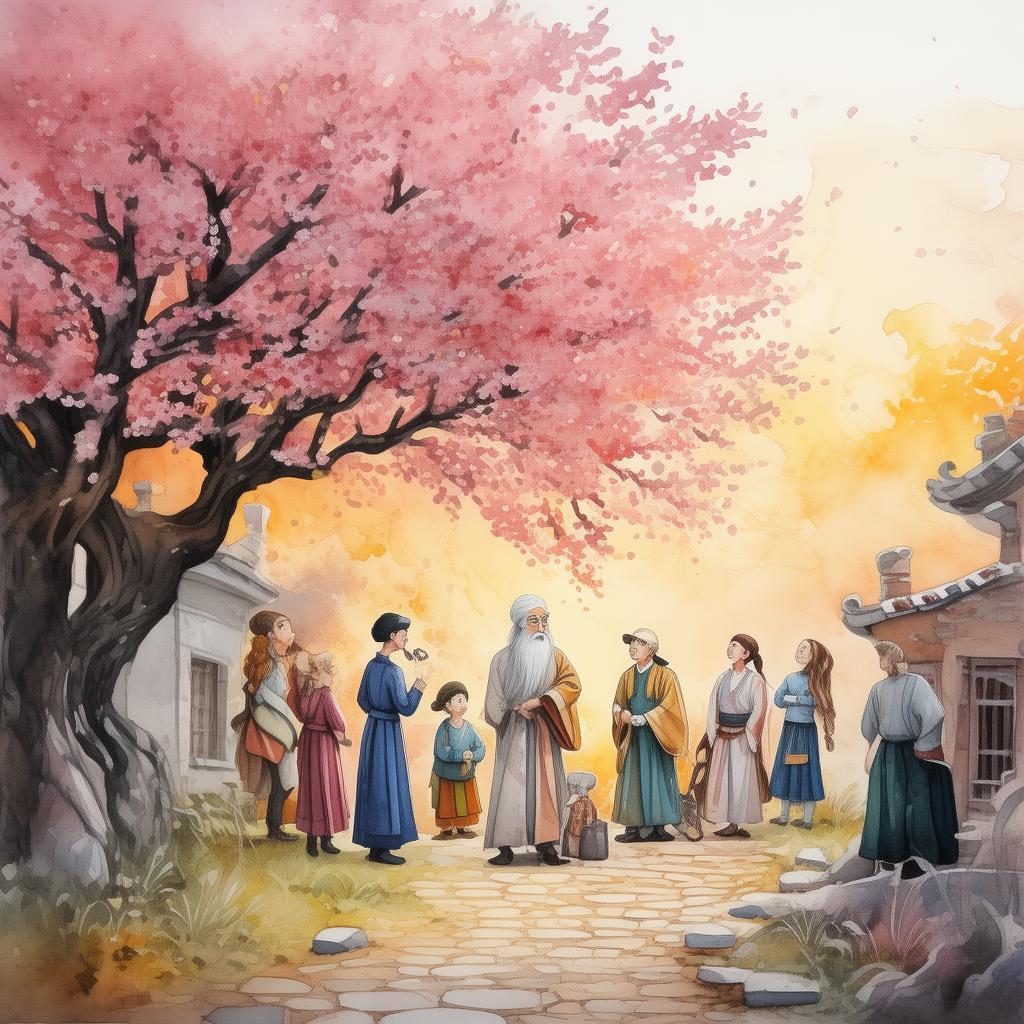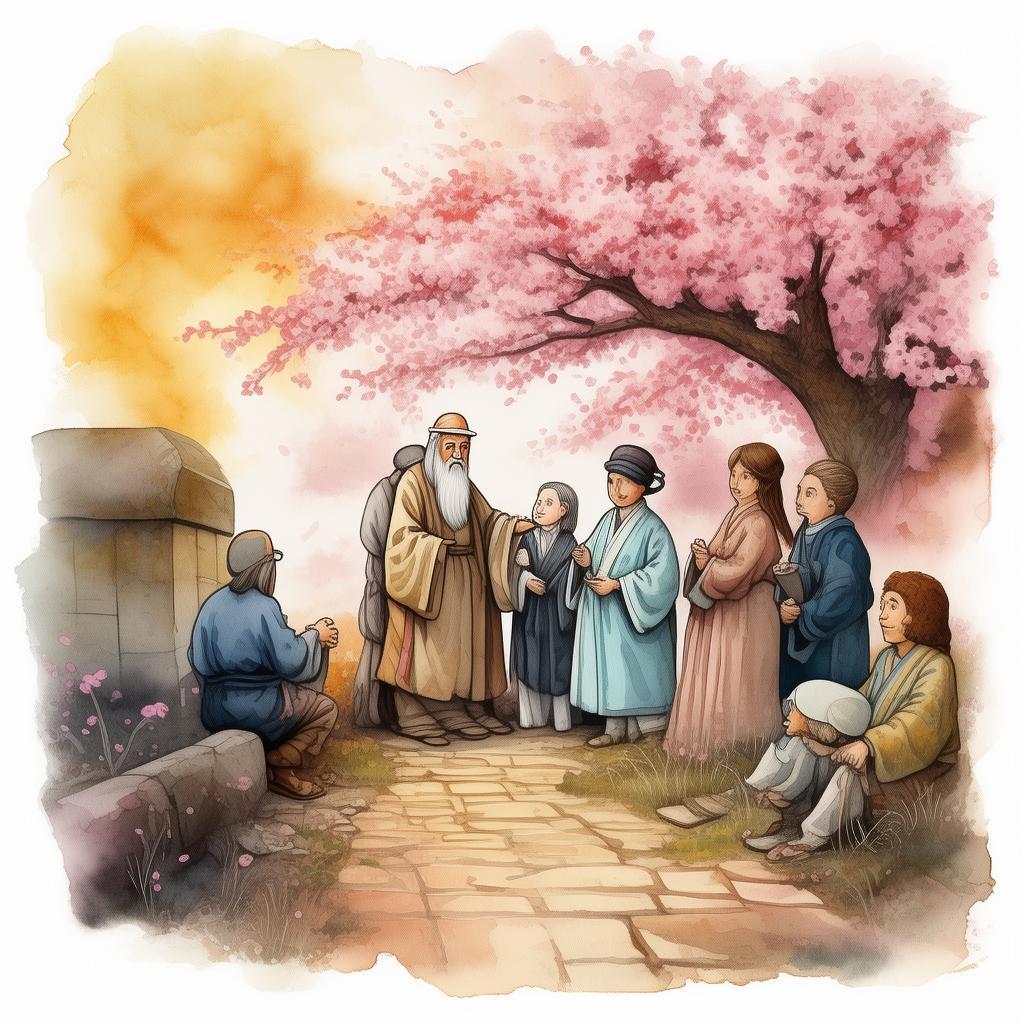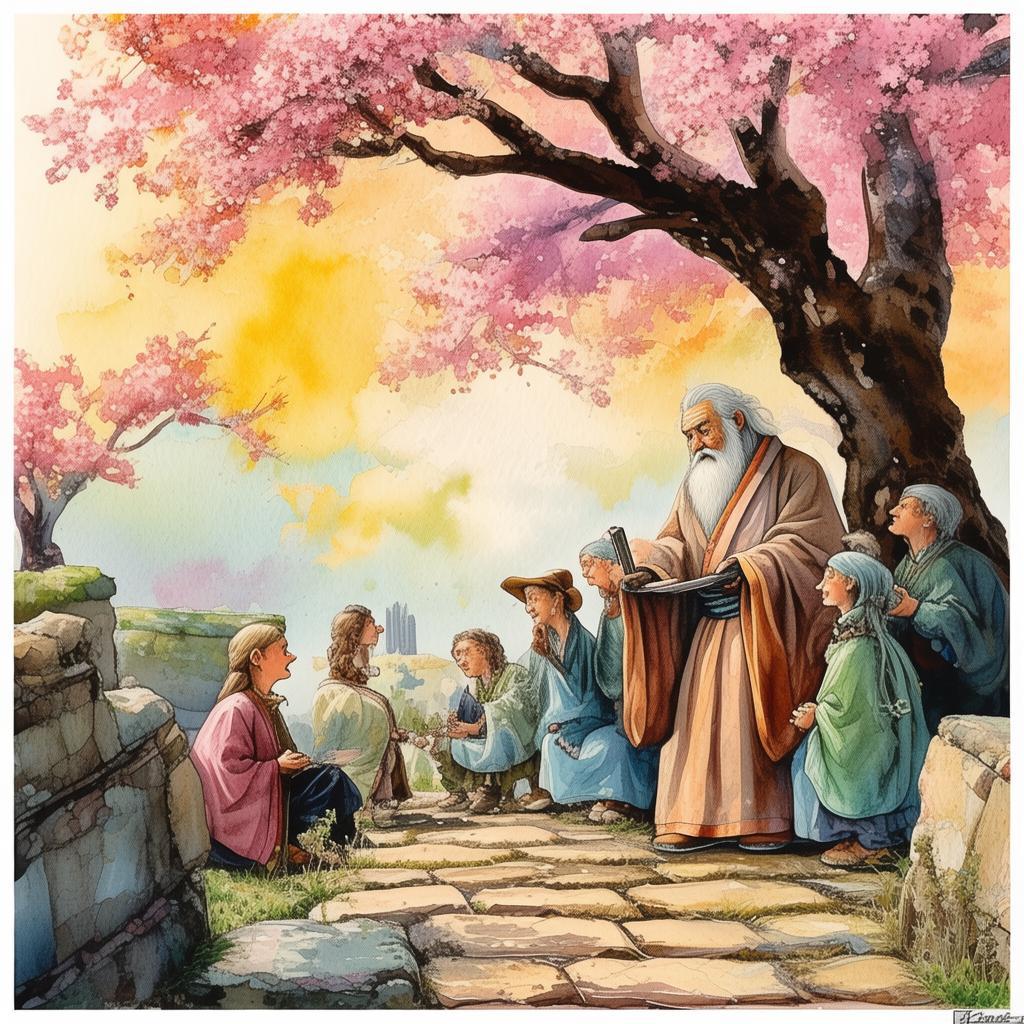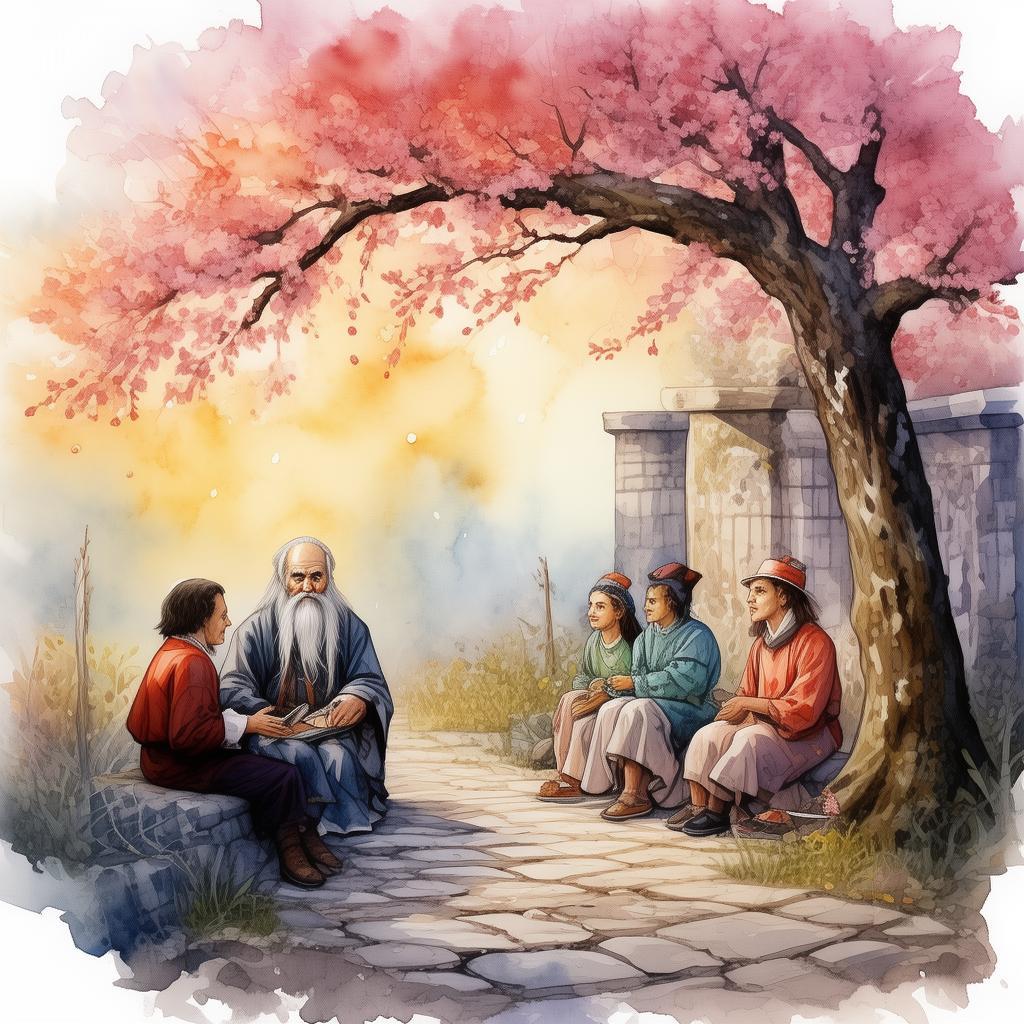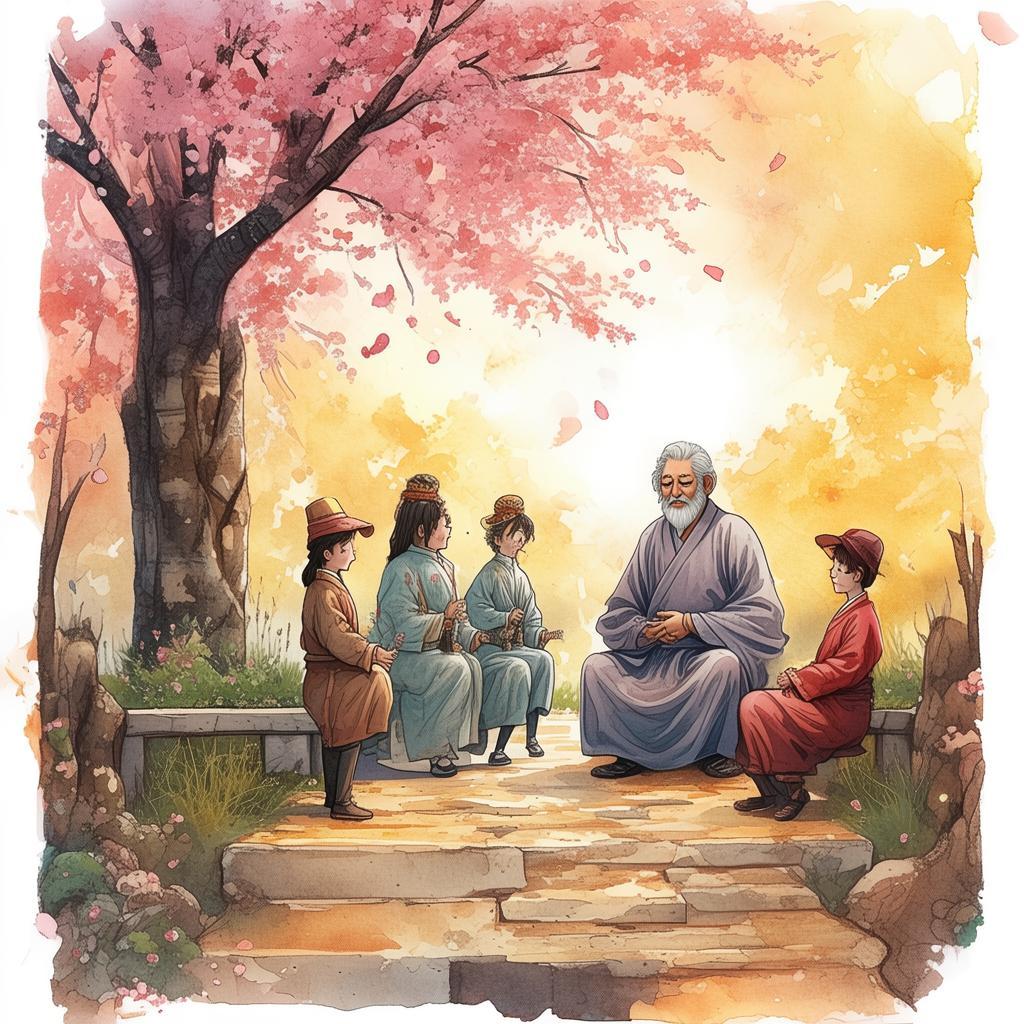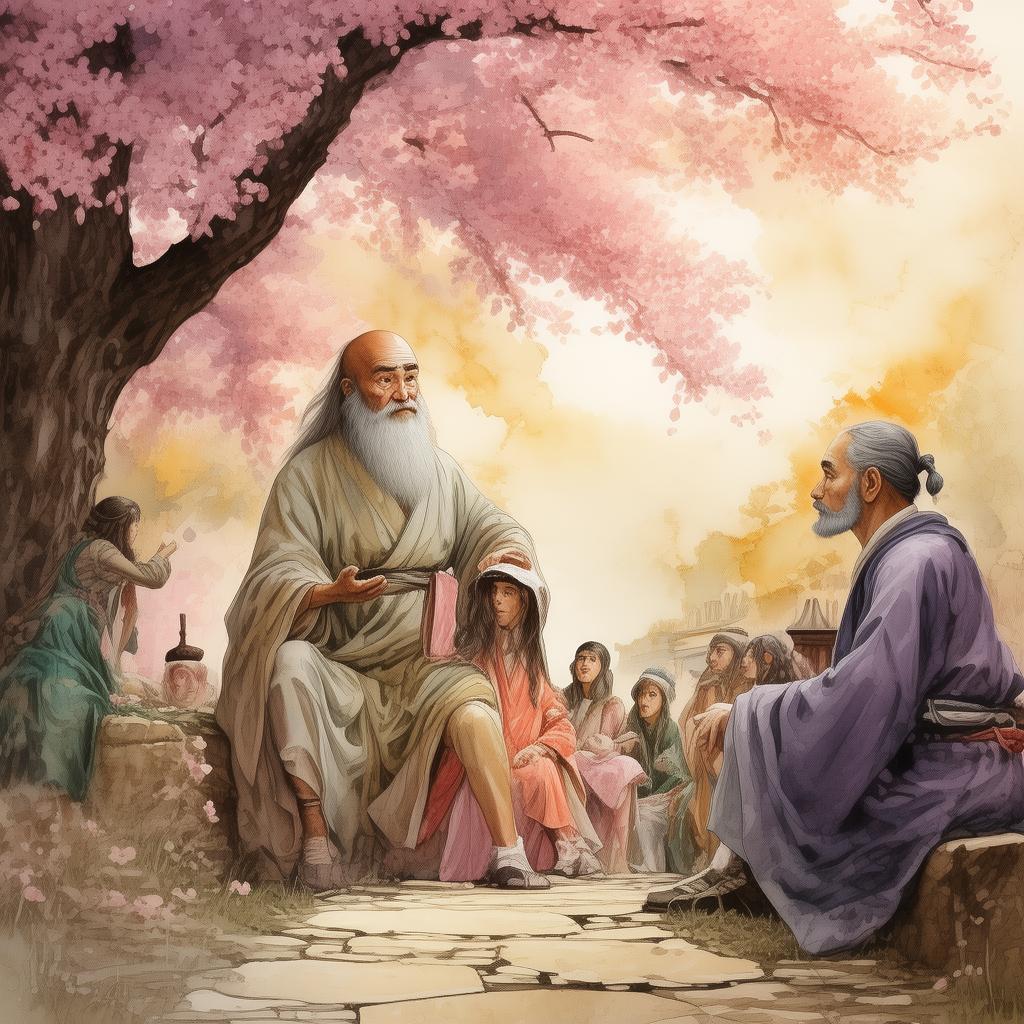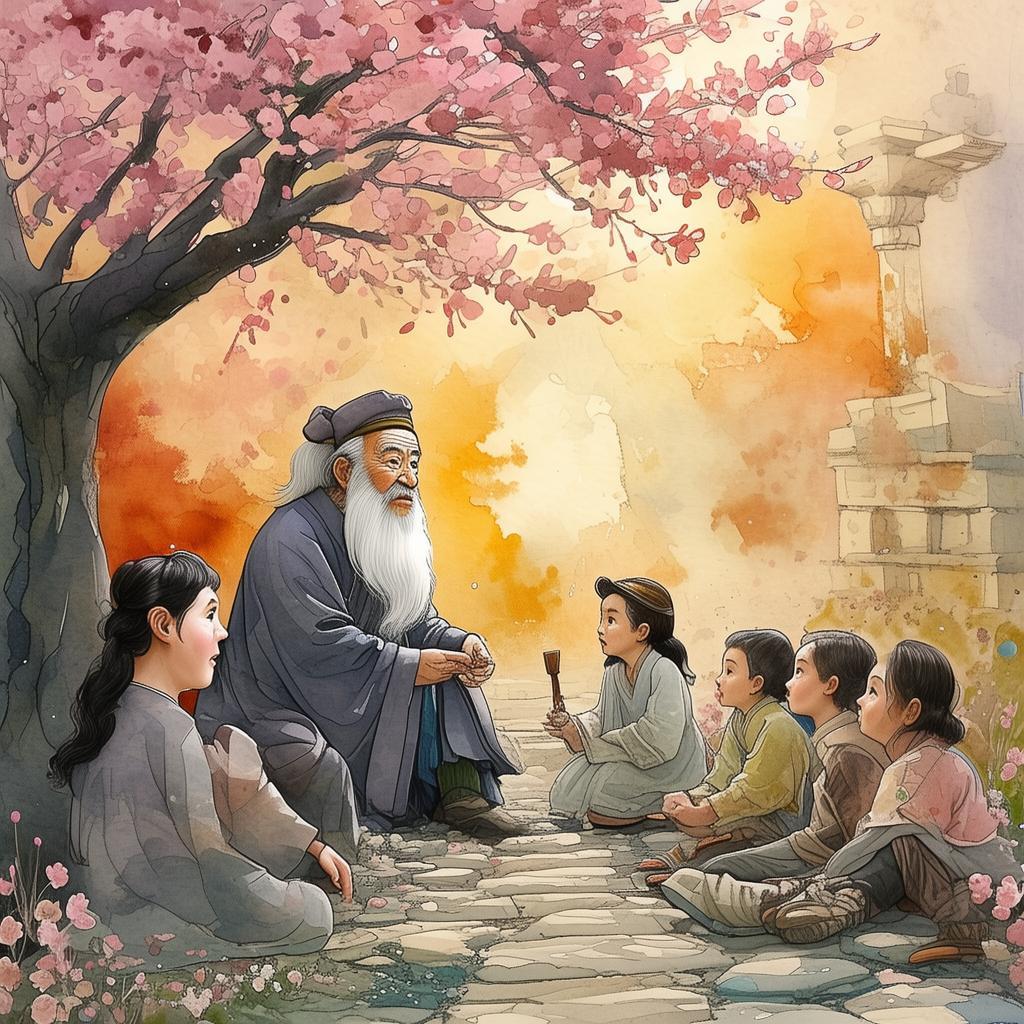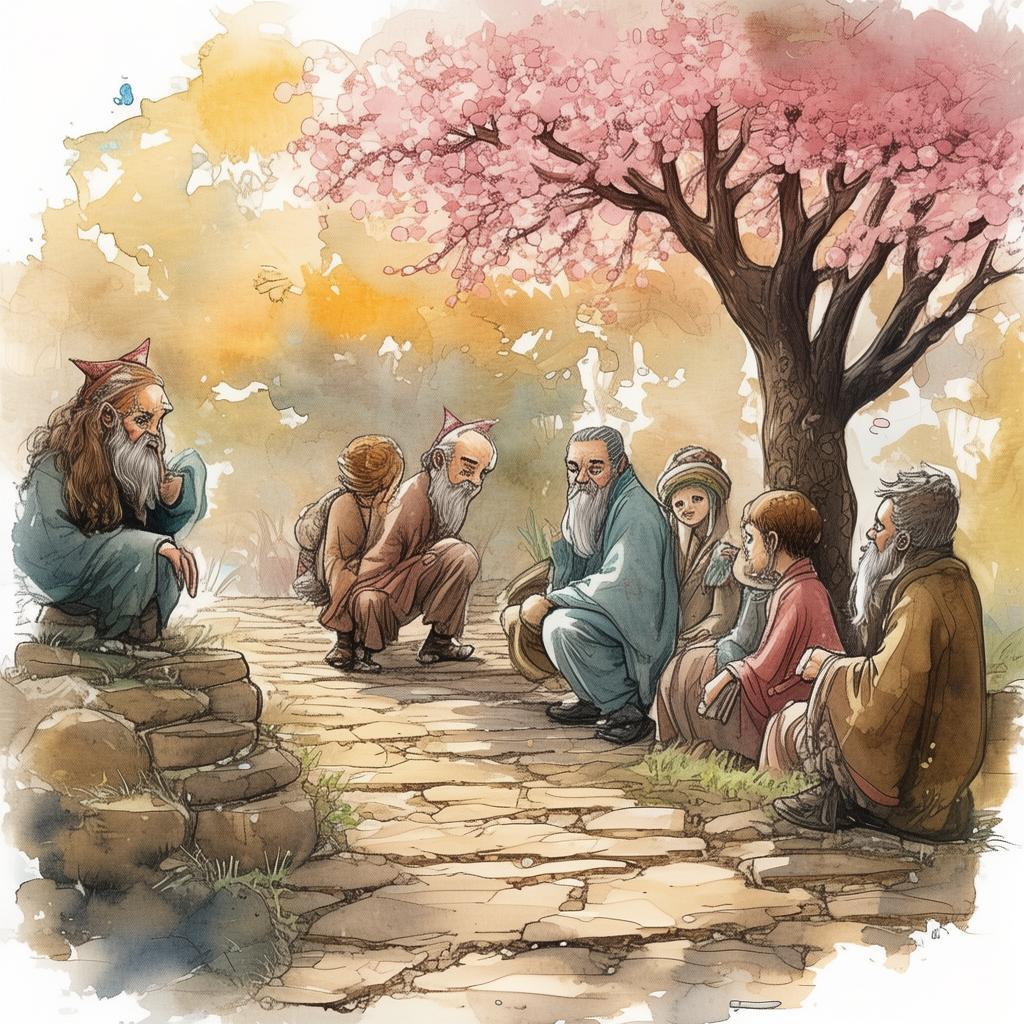The Alchemist's Secret: The Unseen Power of Tranquility
In the heart of an ancient Chinese village, nestled between rolling hills and whispering rivers, there lived an alchemist named Ming. Ming was not your typical alchemist; he was more interested in the tranquility of nature than in the pursuit of eternal life or alchemical gold. He spent his days in a small, dusty workshop, surrounded by ancient scrolls and half-burnt cauldrons, but his heart was elsewhere—yearning for the peace that seemed to elude him.
Ming had heard tales of the "Elixir of Tranquility," a potion that could grant its drinker an inner peace so profound that it would transform their life forever. Driven by a desire to experience this peace, he set out on a journey to find the recipe for this mythical elixir.
The path was fraught with challenges, and Ming's natural laziness often hindered his progress. He would wander through the mountains, stopping to admire the flowers or listen to the birds, rather than pressing on towards his goal. Yet, despite his lack of urgency, Ming's intuition led him to an ancient hermit living in a cave at the peak of a distant mountain.
The hermit, known as Dao, was a wise and reclusive figure who had spent his life studying the ways of the world. Ming, with his easygoing demeanor, struck a chord with Dao, who saw in the alchemist a kindred spirit. One evening, as they sat by a campfire, sharing stories and tea, Dao spoke of a secret ingredient that could bring tranquility to even the most restless of souls.
"The true elixir is not found in herbs or minerals," Dao said, his voice calm and serene. "It is found in the quietude of the mind, the harmony of the spirit, and the acceptance of life's impermanence."
Ming listened intently, but his heart was still set on finding a tangible potion. "But how can one capture tranquility in a bottle?" he asked, his curiosity piqued.
Dao chuckled softly. "The alchemist's true power lies not in the creation of objects, but in the transformation of the self. Tranquility is not something you drink; it is something you embody."
Intrigued, Ming decided to follow Dao's guidance. He began to meditate, to practice mindfulness, and to embrace the impermanence of all things. Gradually, he noticed changes within himself. The worries that once consumed him began to dissipate, replaced by a sense of peace and contentment. He realized that the true elixir was not a potion, but a way of life.
After several months of rigorous self-reflection and practice, Ming returned to his village, a changed man. He shared his newfound tranquility with those around him, and soon, the entire village was bathed in a new kind of peace.
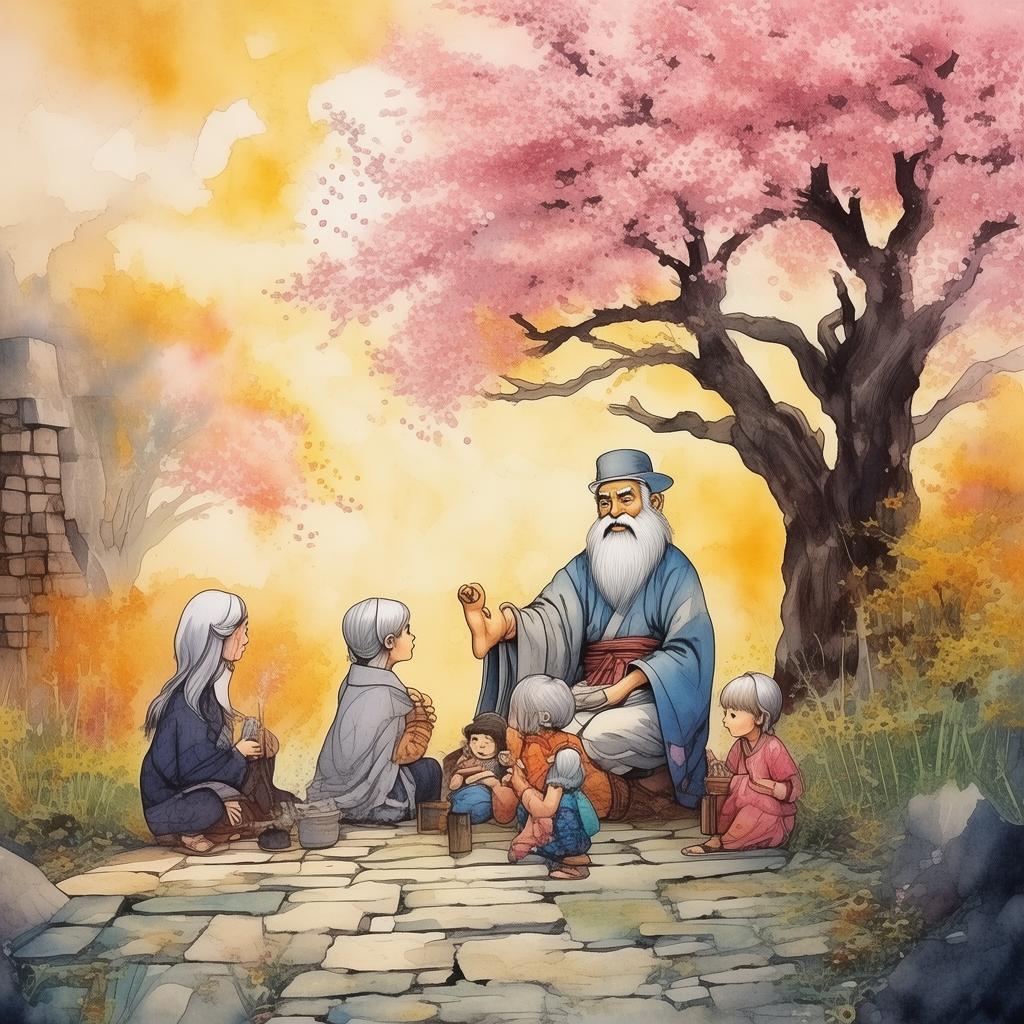
Word of Ming's transformation spread far and wide, and eventually, it reached the ears of the Emperor. The Emperor, intrigued by Ming's story, invited the alchemist to the palace to share his wisdom.
Standing before the Emperor and his court, Ming spoke of his journey and the hermit's teachings. He emphasized the importance of inner peace and the realization that tranquility was not a distant goal but a state of being that could be achieved through self-awareness and acceptance.
The Emperor, moved by Ming's words, asked if there was a way to encapsulate this wisdom in a proverb that could be passed down through generations. Ming pondered for a moment before responding, "Emperor, the tranquility you seek is not in the distant mountains, but in the quietude of your own heart."
Thus, the ancient Chinese proverb was born: "The tranquility of the mind is the highest elixir."
Ming returned to his village, where he continued to live a life of peace and simplicity. The story of the alchemist's journey became a legend, a reminder that the most powerful elixir is not found in bottles or herbs, but in the harmony of the soul.
✨ Original Statement ✨
All articles published on this website (including but not limited to text, images, videos, and other content) are original or authorized for reposting and are protected by relevant laws. Without the explicit written permission of this website, no individual or organization may copy, modify, repost, or use the content for commercial purposes.
If you need to quote or cooperate, please contact this site for authorization. We reserve the right to pursue legal responsibility for any unauthorized use.
Hereby declared.
